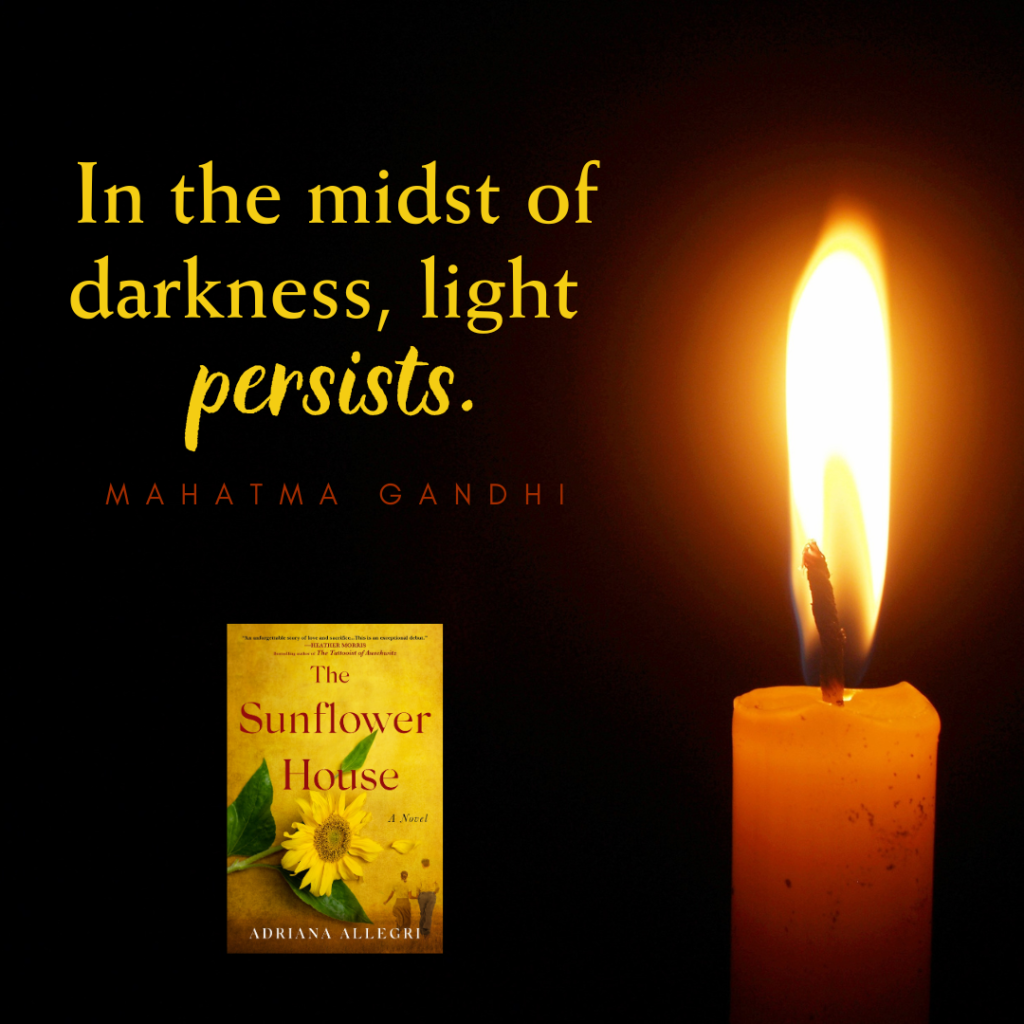Finding Light in the Darkness

I’ve been thinking about light and dark this week, thanks to my chat with John Charles of The Poisoned Pen bookstore. John told me he found The Sunflower House to be a hopeful book.
I was glad to hear it, because I struggled to find hope during my research.
I wrote about Himmler’s ruthless eugenics program–a tiny part of what occurred in Nazi Germany during that time–because the story needed telling. During my research, I looked for small points of light in the darkness. There was little to be found, but I was incredibly moved by stories of the resilient survivors of the Holocaust, and in the small acts of grace and kindness that helped them survive and made a difference.
Here’s what I hope you’ll find in The Sunflower House:
For readers who aren’t very familiar with Nazi Germany, I hope you’ll learn more about Nazism, understand it, and loathe it. A fascist dictatorship founded on extreme nationalism, white supremacy, antisemitism, biological racism, and hatred, Adolf Hitler’s Germany resulted in the murder of 6 million Jews and millions of others. Even so, the numbers and statistics we learn in history classes in school are only an echo of the true horrors that actually occurred. That’s why reading widely is necessary-so that we never forget.
Since I tell the story primarily through the eyes of Allina, a young German woman who must hide her Jewish identity to survive, I hope this book shows clearly how Nazism destroyed everything it touched. Each person had choices to make every day that either helped or hurt others. In the process of destroying others, people also destroyed themselves and lost their humanity. By seeing each character through Allina’s eyes, wrestling with their moral choices, and seeing the destruction, I hope we might all realize we can never let evil like this rise again.
Finally, I hope you’ll find hope in Allina, the hero of this book. I chose her as the main character because I’m a woman, and because women were horribly marginalized in Nazi Germany. They were valued for their bodies and ability to bear sons and daughters for The Reich. Their hearts and minds were not necessary; obedience was. Nevertheless, despite the peril and possessing little actual power, Allina still chooses to help others as she tries to save herself. She also chooses to forgive instead of acting in hatred or revenge.
The material in The Sunflower House is challenging and its themes are sensitive ones, but it’s important to examine critical issues, as well as our own thoughts and prejudices. We can’t afford to dismiss the darkness that spread like a disease during that period or refuse to see when echoes of that darkness arise today.
Adriana xo 🌻

